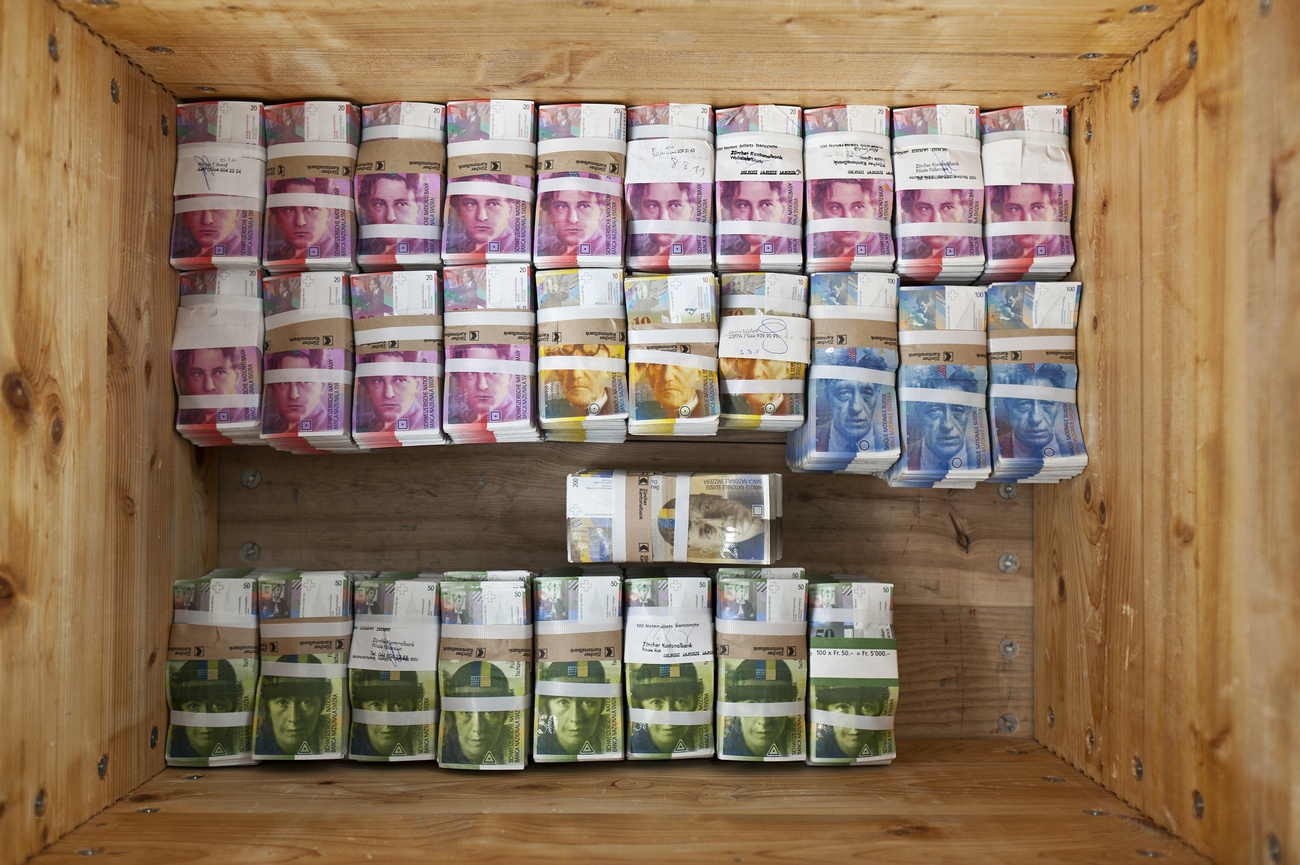
Truth or tale: Have foreign leaders hidden money in Swiss banks?
The trail of “dirty money” in the possession of corrupt public officials has long led to Switzerland’s financial centre. It’s one that the government has tried to clean up.
Popular uprisings, leaked documents and collaborative media investigations: in recent decades, all of these have led to the discovery of suspicious Swiss bank accounts.
In 2011, for example, as protestors across the Arab world rose up against authoritarian regimes, Switzerland quickly froze hundreds of millions of francs in accounts linked to then-embattled leaders including Bashar al-Assad (Syria) and Muammar al-Gaddafi (Libya).
From Haiti and Peru in Latin America to Kazakhstan and Uzbekistan in Central Asia, by way of Angola and Mali in Africa, several other foreign officials are suspected of having transferred funds stolen from the state to Swiss banks.
In 2022, following revelations from the #SuisseSecrets media investigation, Swissinfo highlighted some of the most notorious cases of kleptocracy touching Swiss soil:

More
Dictators’ funds in Switzerland – the biggest scandals
Switzerland has reacted to similar disclosures by putting several measures in place to prevent money laundering and illicit financial flows. In 2016, it introduced a new law to help repatriate stolen funds to their countries of origin.
But all of this is easier said than done. Prosecutors must be able to prove in a court of law that the funds in question were illicitly obtained before they can be restituted to the people. Ideally, state structures must also be in place in the country of origin to receive and redistribute this money transparently.
Swissinfo took a look at some of the progress Switzerland has made in asset recovery, including involving civil society to decide how the money will be spent to benefit those who most need it. But challenges remain.

More
With US in retreat, can Switzerland maintain fight against kleptocracy?
Edited by Tony Barrett/vm/ac































You can find an overview of ongoing debates with our journalists here . Please join us!
If you want to start a conversation about a topic raised in this article or want to report factual errors, email us at english@swissinfo.ch.